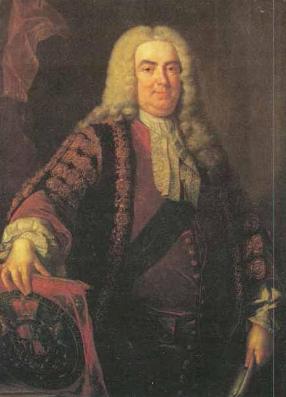POJ 3126 Prime Path
来源:互联网 发布:淘宝开店ppt 编辑:程序博客网 时间:2024/06/06 01:02
Prime Path
Time Limit: 1000MS Memory Limit: 65536KTotal Submissions: 16065 Accepted: 9068
Description
 The ministers of the cabinet were quite upset by the message from the Chief of Security stating that they would all have to change the four-digit room numbers on their offices.
The ministers of the cabinet were quite upset by the message from the Chief of Security stating that they would all have to change the four-digit room numbers on their offices. — It is a matter of security to change such things every now and then, to keep the enemy in the dark.
— But look, I have chosen my number 1033 for good reasons. I am the Prime minister, you know!
— I know, so therefore your new number 8179 is also a prime. You will just have to paste four new digits over the four old ones on your office door.
— No, it’s not that simple. Suppose that I change the first digit to an 8, then the number will read 8033 which is not a prime!
— I see, being the prime minister you cannot stand having a non-prime number on your door even for a few seconds.
— Correct! So I must invent a scheme for going from 1033 to 8179 by a path of prime numbers where only one digit is changed from one prime to the next prime.
Now, the minister of finance, who had been eavesdropping, intervened.
— No unnecessary expenditure, please! I happen to know that the price of a digit is one pound.
— Hmm, in that case I need a computer program to minimize the cost. You don't know some very cheap software gurus, do you?
— In fact, I do. You see, there is this programming contest going on... Help the prime minister to find the cheapest prime path between any two given four-digit primes! The first digit must be nonzero, of course. Here is a solution in the case above.
1033The cost of this solution is 6 pounds. Note that the digit 1 which got pasted over in step 2 can not be reused in the last step – a new 1 must be purchased.
1733
3733
3739
3779
8779
8179
Input
One line with a positive number: the number of test cases (at most 100). Then for each test case, one line with two numbers separated by a blank. Both numbers are four-digit primes (without leading zeros).
Output
One line for each case, either with a number stating the minimal cost or containing the word Impossible.
Sample Input
31033 81791373 80171033 1033
Sample Output
670
Source
Northwestern Europe 2006
题意:给你两个数,第一个数初始值,第二个是最终值。问你第一个数经过最少多少步变化后,可以得到第二个。变化的规则是每次可以变化一个数字,然后变了后的必须为素数。
解:直接搜就可以了。来一个线性筛先把素数全部筛出来。
#include<stdio.h>#include<string.h>#include<queue>#include<algorithm>using namespace std;const int maxm=1e5+10;int vis1[maxm];int vis[maxm];int isprime[maxm];int prime[maxm];int s,e;struct node{ int x,step;};void Init(){ int cnt=0; memset(vis1,0,sizeof(vis1)); memset(isprime,0,sizeof(isprime)); memset(prime,0,sizeof(prime)); for(int i=2; i<=maxm; i++) { if(!vis1[i]) { vis1[i]=1; prime[cnt++]=i; } for(int j=0; j<cnt&&i*prime[j]<=maxm; j++) { vis1[i*prime[j]]=1; } } for(int i=0; i<cnt; i++) { isprime[prime[i]]=1; }}void bfs(){ struct node pre,now; queue<node>q; pre.x=s; pre.step=0; vis[s]=1; q.push(pre); while(!q.empty()) { pre=q.front(); q.pop(); if(pre.x==e) { printf("%d\n",pre.step); return; } for(int i=1; i<=4; i++) { if(i==1) { for(int j=0; j<=9; j++) { int a=(pre.x/1000); int b=(pre.x/100)%10; int c=(pre.x/10)%10; int d=(pre.x)%10; now.x=j*1000+b*100+c*10+d; now.step=pre.step+1; if(now.x>=1000&&now.x<=9999&&!vis[now.x]&&isprime[now.x]) { vis[now.x]=1; q.push(now); } } } if(i==2) { for(int j=0; j<=9; j++) { int a=(pre.x/1000); int b=(pre.x/100)%10; int c=(pre.x/10)%10; int d=(pre.x)%10; now.x=a*1000+j*100+c*10+d; now.step=pre.step+1; if(now.x>=1000&&now.x<=9999&&!vis[now.x]&&isprime[now.x]) { vis[now.x]=1; q.push(now); } } } if(i==3) { for(int j=0; j<=9; j++) { int a=(pre.x/1000); int b=(pre.x/100)%10; int c=(pre.x/10)%10; int d=(pre.x)%10; now.x=a*1000+b*100+j*10+d; now.step=pre.step+1; if(now.x>=1000&&now.x<=9999&&!vis[now.x]&&isprime[now.x]) { vis[now.x]=1; q.push(now); } } } if(i==4) { for(int j=0; j<=9; j++) { int a=(pre.x/1000); int b=(pre.x/100)%10; int c=(pre.x/10)%10; int d=(pre.x)%10; now.x=a*1000+b*100+c*10+j; now.step=pre.step+1; if(now.x>=1000&&now.x<=9999&&!vis[now.x]&&isprime[now.x]) { vis[now.x]=1; q.push(now); } } } } } return;}int main(){ Init(); int n; scanf("%d",&n); while(n--) { memset(vis,0,sizeof(vis)); scanf("%d%d",&s,&e); bfs(); } return 0;} 0 0
- POJ 3126 Prime Path
- POJ 3126 Prime Path
- poj 3126Prime Path
- POJ -3126-Prime Path
- POJ 3126 Prime Path
- poj 3126 Prime Path
- POJ 3126 - Prime Path
- POJ 3126 Prime Path
- poj 3126 prime path
- POJ 3126 Prime Path
- Prime Path poj 3126
- POJ 3126 Prime Path
- poj 3126 Prime Path
- POJ 3126 Prime Path
- poj 3126 Prime path
- poj - 3126 - Prime Path
- POJ 3126 Prime Path
- POJ 3126 Prime Path
- RecylerView 添加Header的正确姿势
- Cygwin安装指南
- 使用BitmapShader实现圆形,圆角图片
- NPOI导出Excel
- JAVA static解析
- POJ 3126 Prime Path
- 页面间跳转
- 3. SOAP
- java基本例子
- json的反序列化
- freemarker中macro的使用
- mssql表值函数
- Android Spinner 简单应用
- Linux系统下安装Apache2.4+Mysql5.7+PHP7+Perl(小白装lampp一)


